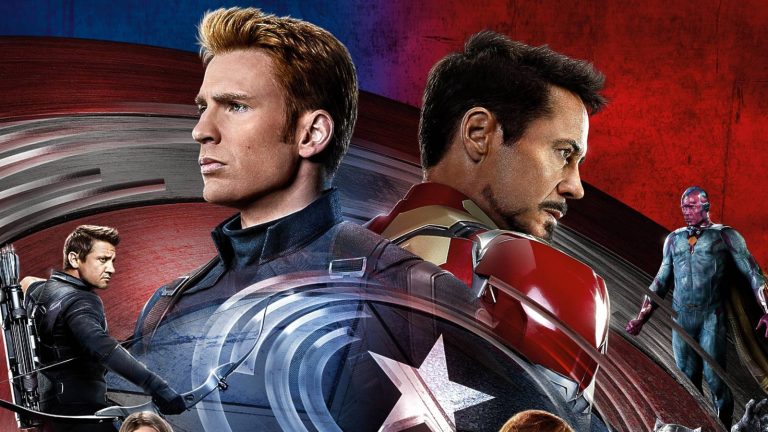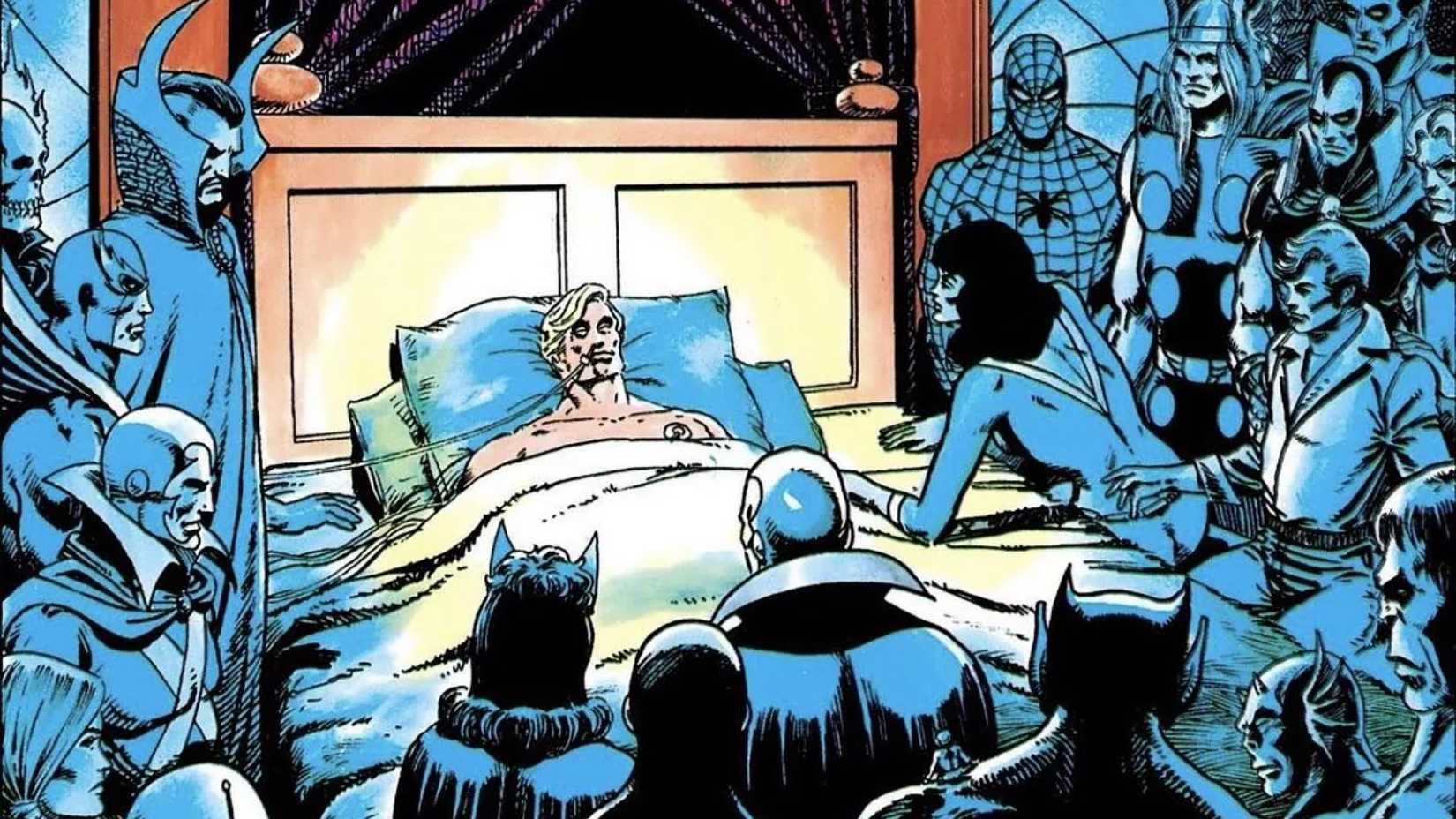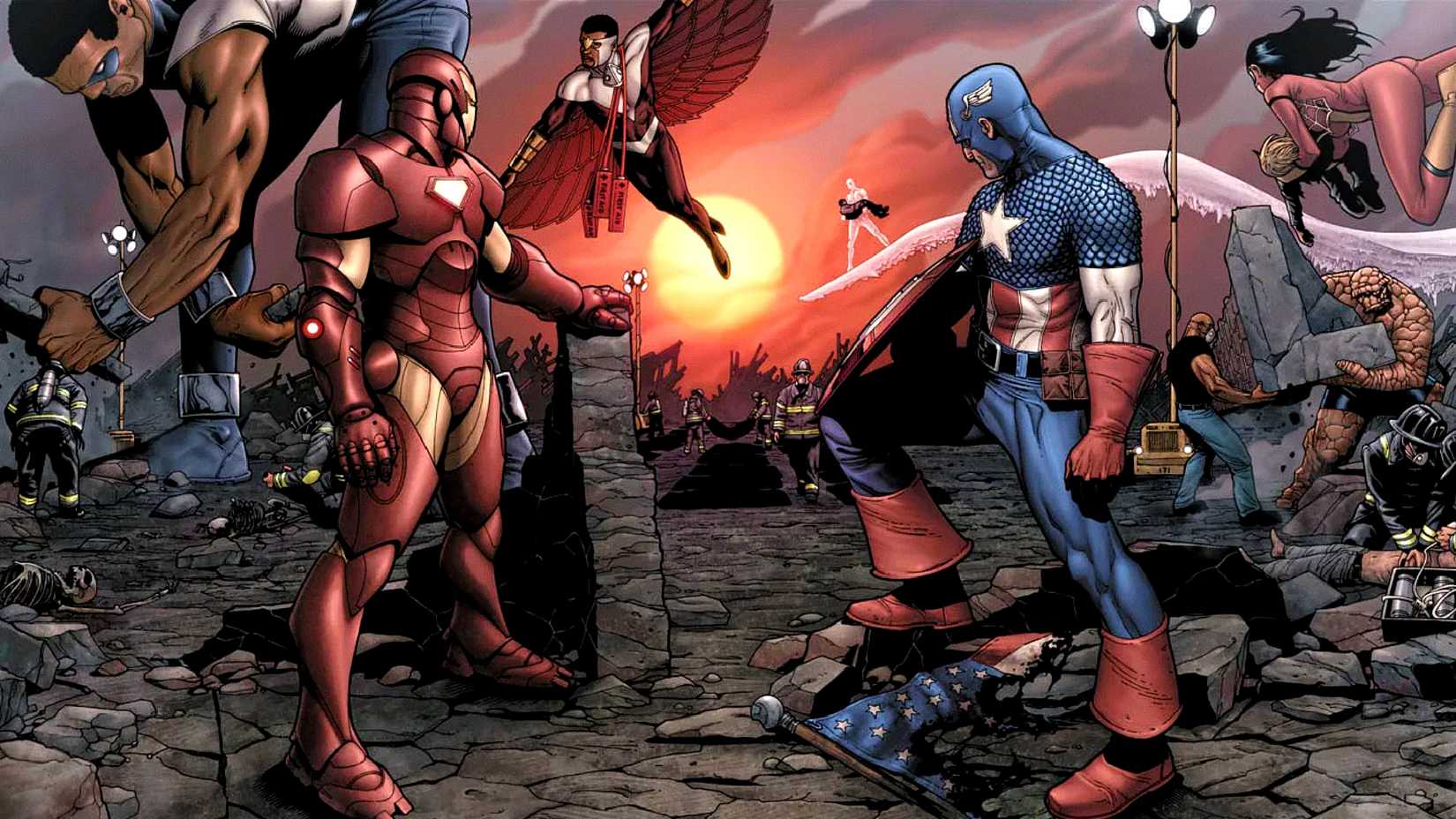Countless Marvel heroes, villains, and supporting characters have died in unforgettable comic storylines that shaped the emotional fabric of the multiverse. The MCU’s ever-expanding live-action multiverse has followed suit with its own dramatic deaths. Some of them, like Iron Man’s sacrifice in Avengers: Endgame, have topped any similar event the comics have attempted to create.
The MCU continues to grow into a multiverse of infinite possibilities. Yet, some of Marvel’s most shocking and memorable deaths may never transition to live action. Some have already been adapted perfectly elsewhere, others are too dark for general audiences, and others simply don’t fit the franchise’s continuity.
Elektra Is Stabbed By Bullseye
Elektra Has Died Too Many Times Already In The MCU
Stabbed by her own sai, Elektra’s brutal murder by Bullseye is almost impossible for the MCU to adapt without undermining Elodie Yung’s Elektra Natchios. Netflix’s Daredevil season 2 already played heavily with Elektra’s death, resurrection, and ambiguous fate. Bringing her back again just to reenact the same kind of plot would feel repetitive and shrink her ability to evolve.
The MCU also needs Bullseye to inflict new forms of psychological devastation on Matt Murdock. Daredevil: Born Again has already escalated the villain’s brutality with Foggy Nelson’s death. The original comic’s gritty intimacy around Bullseye’s cruelty and Matt’s grief is too raw to recycle without numbing the audience. Marvel Studios would gain little from replaying a similar tragedy, at least anytime in the near future.
Mar-Vell Dies A Tragic Natural Death
The MCU’s Mar-Vell Already Lived A Different Life And Died A Very Different Death
Four decades later, Mar-Vell’s death remains one of Marvel’s most grounded and emotionally powerful stories because it rejects the genre’s usual shortcuts: no last-minute cure or cosmic miracle saves his life at the last minute. All Marvel heroes witness as a beloved hero slowly succumb to cancer, surrounded by friends who must accept that even superheroes cannot escape mortality. The MCU could absolutely explore how even the strongest figures must one day face the same fate as a regular human.
Sadly, the MCU simply can’t tell this story the same way. The MCU’s Mar-Vell was never a proper superhero, and her legacy didn’t shape her universe the way the comics’ Mar-Vell did. MCU Mar-Vell was shot by Yon-Rogg, without the time or space to form meaningful emotional connections with someone other than Carol Danvers.
The New Warriors’ Accidental Deaths Trigger Civil War
The MCU’s Civil War Already Happened With A Very Different Inciting Event
In the comics, the New Warriors’ catastrophic Stamford Incident is the spark for Marvel’s Civil War. The young heroes’ attempt to mix heroism with spectacle leads to a massive explosion that kills hundreds of civilians, including dozens of children, thus turning the world against superheroes overnight. The Stamford Incident tragedy forces society to reconsider whether superpowered individuals should be free to act without oversight.
The New Warriors’ tragedy wouldn’t have the same impact if it happened in the MCU now. First, Civil War already unfolded with a different catalyst. The MCU’s version of the conflict centers on the personal feud between Tony Stark and Steve Rogers, sparked by the Winter Soldier being framed for the murder of King T’Chaka. It’s a character-driven political drama rather than a commentary on inexperienced heroes triggering public backlash through reckless decisions.
Black Widow Is Assassinated With Captain America’s Shield In Secret Empire
Natasha Romanoff Already Died A Tragic Death In The MCU
Black Widow’s death is by far one of the most memorable moments in Secret Empire. The image of Captain America’s shield breaking Natasha Romanoff’s neck is brutally straightforward and symbolic of the event’s corruption themes. Natasha is dead before she hits the ground, and she lies in front of Cap, almost drowned by the red that floods the panel.
The MCU has already given Natasha a definitive, emotional death on Vormir. Resurrecting her only to kill her again would be harmful to the character’s legacy. Not to mention, portraying an evil Captain America killing Black Widow could be nothing short of controversial, especially after the MCU spent a decade establishing Steve Rogers as a symbol of integrity. The panel depicting Black Widow’s lifeless body is also too similar to the shot of Natasha lying dead on Vormir.
Wolverine Slashes Hulk From The Inside Out In Old Man Logan
Hulk’s Death In Old Man Logan Is Too Grotesque For The MCU
In Old Man Logan‘s dystopian timeline, an aged Hulk has twisted himself into a diabolical, cannibalistic in the Wasteland. Hulk consumes Wolverine whole during their final confrontation, but Logan survives and, in one of the most brutal revenge kills in Marvel history, tears his way out of Hulk’s stomach. Hulk’s death doesn’t hold back on being ridiculously visceral.
Such a gruesome death is far too graphic for the MCU, even if told through an alternate universe or hypothetical scenario. Not even a hypothetical What If…? season 4 would likely dare adapt the scene in full, both for its graphic violence and its portrayal of Hulk as a twisted, cannibalistic villain. Since the MCU has sidelined Hulk for so long, killing any variant in such an ugly fashion would be an insult to the character.
Gwen Stacy’s Neck Snaps While Spider-Man Fights Green Goblin
Gwen Stacy’s Life And Death Has Already Been Adapted To Perfection In A Different Universe
One would think Gwen Stacy’s iconic death is too dark to translate to a family-friendly Spider-Man movie. Yet, Marc Webb’s The Amazing Spider-Man 2 adapted it with remarkable accuracy. The Amazing Spider-Man 2 not only captures the moment with the most heartbreaking intensity but also takes the time to develop Gwen and Peter’s romance beforehand, making the loss feel earned.
Because of how well Gwen Stacy’s story was already told in the Andrew Garfield-led movies, the MCU is unlikely to attempt a similar adaptation. Both of Marc Webb’s duology handled Gwen’s character faithfully. Bringing Gwen into the MCU only to kill her would feel unnecessary, and even the most dramatic version of her death likely wouldn’t come close to matching the emotional weight and impact that The Amazing Spider-Man 2 already delivered.
Karen Page Dies Trying To Protect Daredevil
Foggy Nelson Took Karen Page’s Place In The MCU’s Born Again
After years away from Daredevil’s life, Karen Page becomes addicted to drugs and ends up selling Matt Murdock’s secret identity for her next fix. When Karen returns to New York, she is caught in the crossfire of Kingpin’s final assassination attempt. Bullseye targets Daredevil and hurls Billy Club projectiles at him, but Karen leaps in front of Matt at the last second, sacrificing her life to save him in Born Again‘s most tragic moment.
Foggy Nelson’s murder at the hands of Bullseye already fills that role in Daredevil: Born Again season 1, being the shocking loss of Matt’s most stabilizing friend and the catalyst that forces him to confront Bullseye’s intimidation. If the MCU killed Karen now, it would risk tipping Daredevil’s story into excessive melodrama and misery, especially since Netflix’s adaptation of the Born Again comic in season 3 already passed without her death. With Foggy’s murder already delivering the emotional punch, repeating the same tragedy simply isn’t necessary.
Jean Grey Sacrifices Herself To Stop The Dark Phoenix
Live-Action Jean Needs To Grow Past Her Death And The Phoenix Force
Jean Grey’s death as the Dark Phoenix is probably the most iconic superhero sacrifice in the Marvel Universe, by which many similar stories are measured. Jean Grey has died or come close to death multiple times throughout the years. Still, none of them are as memorable as her decision to die in order to deprive the Phoenix Force of its host back in the Dark Phoenix Saga.
Live-action Jean has already died twice, in X-Men: The Last Stand and Dark Phoenix, neither of which is widely considered a solid movie. The MCU has the opportunity to finally show Jean Grey as a fully matured heroine with a well-defined story and characterization that doesn’t depend on the Phoenix Force. Marvel Studios can explore Jean’s Omega-level power, her leadership, her romantic and ethical dilemmas, and her complex bond with Cyclops without rushing toward the familiar ending.








